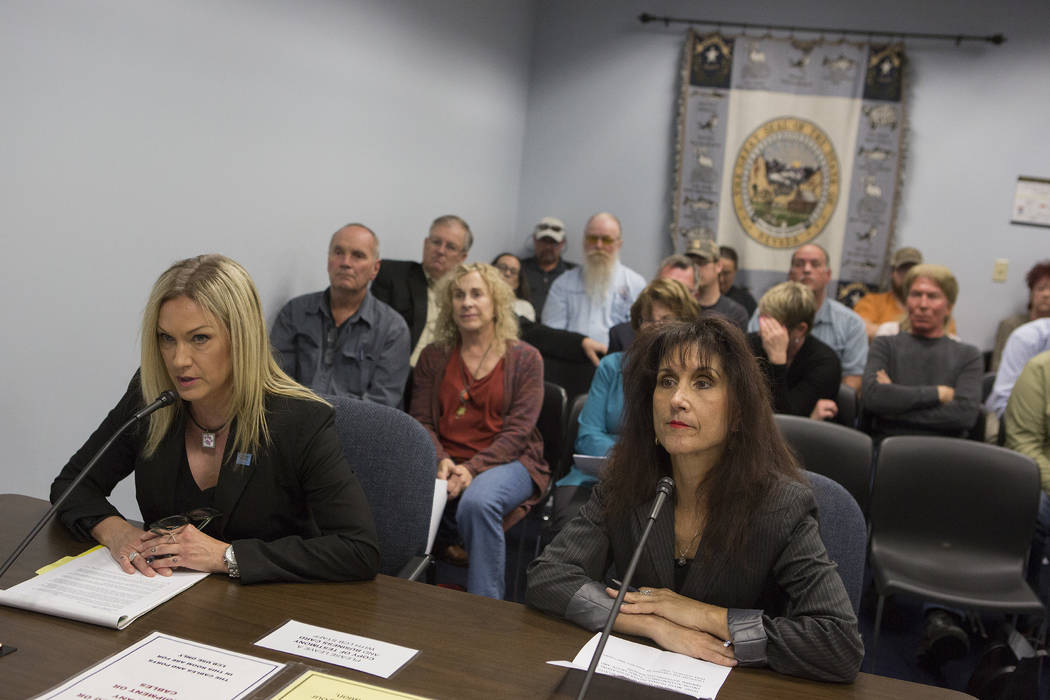Nevada trappers not happy with proposals in Legislature

CARSON CITY — Nevada trappers might face regulations unimaginable to Kit Carson, the legendary mountain man and trapper for whom the Nevada state capital is named.
The Senate Natural Resources Committee on Tuesday heard more than two hours of testimony about legislation that would put more oversight in place for trapping. Senate Bill 364 would require trappers to register their traps and put identifying information on them. Trappers also would have to check their traps every 24 hours instead of the 96 hours current law requires.
Comments from both sides illustrate the competing interests between rural Nevada, where trapping is a way of life, and the urban Las Vegas area, where about 70 percent of the state resides. Testimony from Elko was entirely against the bill, while testimony from Las Vegas was sprinkled with support from animal advocates and pet owners.
Safer for pets
Much of the debate centered on requiring traps to be checked sooner than the current 96 hours. Supporters of the change say checking a trap once every 24 hours will give trapped domestic animals a better chance at survival.
Heather Carpenter, western regional director for the Humane Society, said the bill would provide “limited, common sense updates” to trapping laws.
The bill also would allow a domestic animal owner to disable a trap if it poses an immediate risk to people or their pets.
“If you’re about to step on a trap, you should be able to legally disable the trap,” said Patrick Donnelly, Nevada wildlife advocate for the Center for Biological Diversity.
Trapping in Nevada is essentially unregulated, he said.
“Nevada is no longer the Wild West,” Donnelly said.
The testimony also included numerous pet owners who told stories of their dogs being caught in traps.
Trappers oppose
But trappers said the bill would only increase the likelihood of running into a trap. John Sullivan, vice president of the Nevada Trappers Association, said requiring a check once every 24 hours is “the worst part” of the bill.
That requirement would move trapping activity from remote areas and closer to more populated areas because of the time required to travel to sites, Sullivan said.
About 1,000 people trap in Nevada, including some who do it for a living, according to the Nevada Trappers Association.
Joel Blakeslee, president of the Nevada Trappers Association, said policymakers have looked at the issue for years and not changed the 96-hour requirement.
Trapping licenses
Lawmakers also are considering Senate Bill 365, which would require that fees for trapping licenses increase in a way that makes the state’s trapping program revenue neutral. The bill does not give a dollar figure but would require the state to adjust the fees every year. The bill initially had language to make trapping illegal on public lands, but that provision was removed.
Currently, trappers pay $42 for an annual license and $5 per pelt to the Nevada Department of Wildlife.
Contact Ben Botkin at bbotkin@reviewjournal.com or 775-461-0661. Follow @BenBotkin1 on Twitter.
Animals that can be trapped in Nevada:
- Coyotes, black black-tailed jackrabbit, badger, weasel, spotted skunk, striped skunk, raccoon and ring-tailed cats.
- Furbearers animals trapped for pelts: beaver, mink, muskrat, otter, Kit fox, red fox, gray fox, bobcat.












